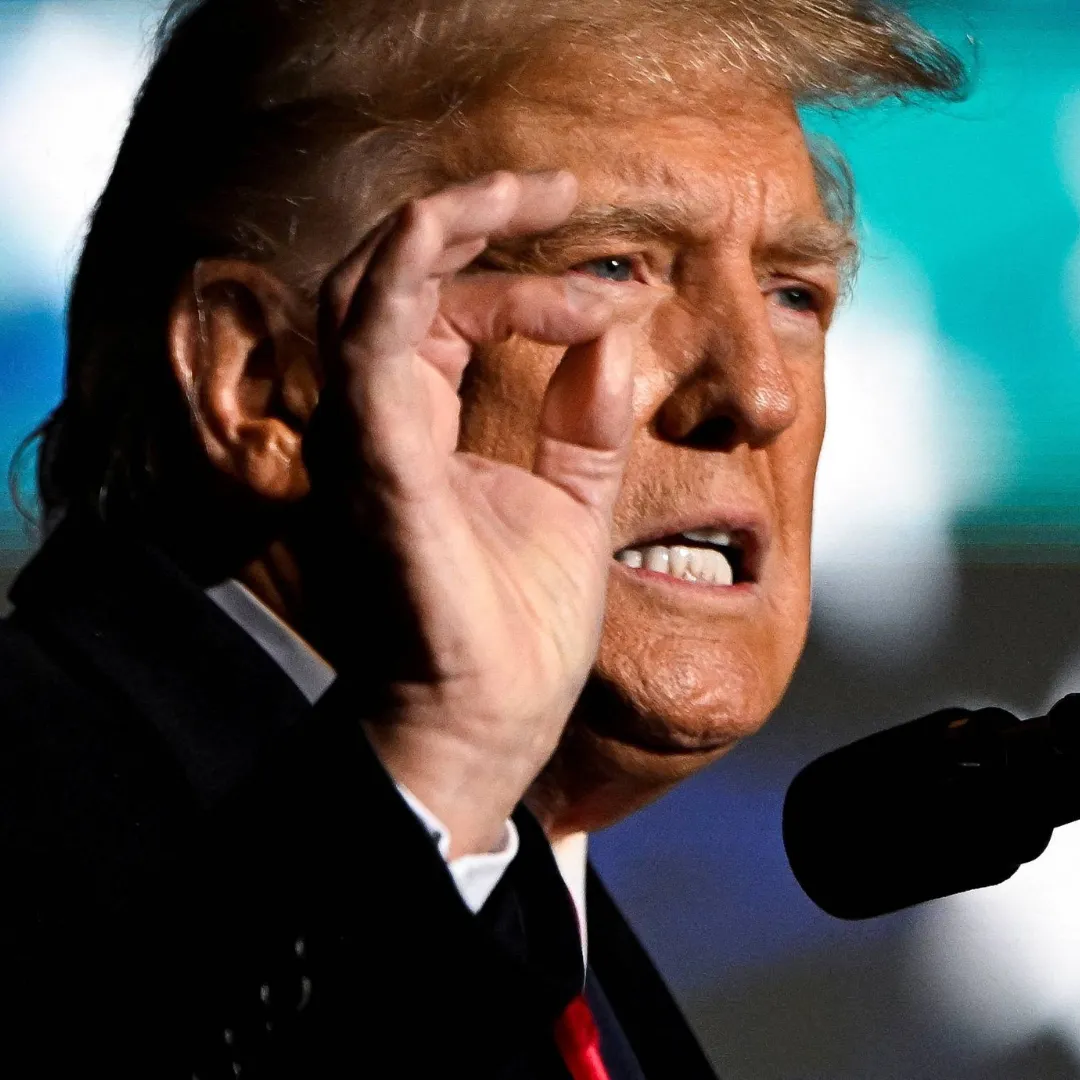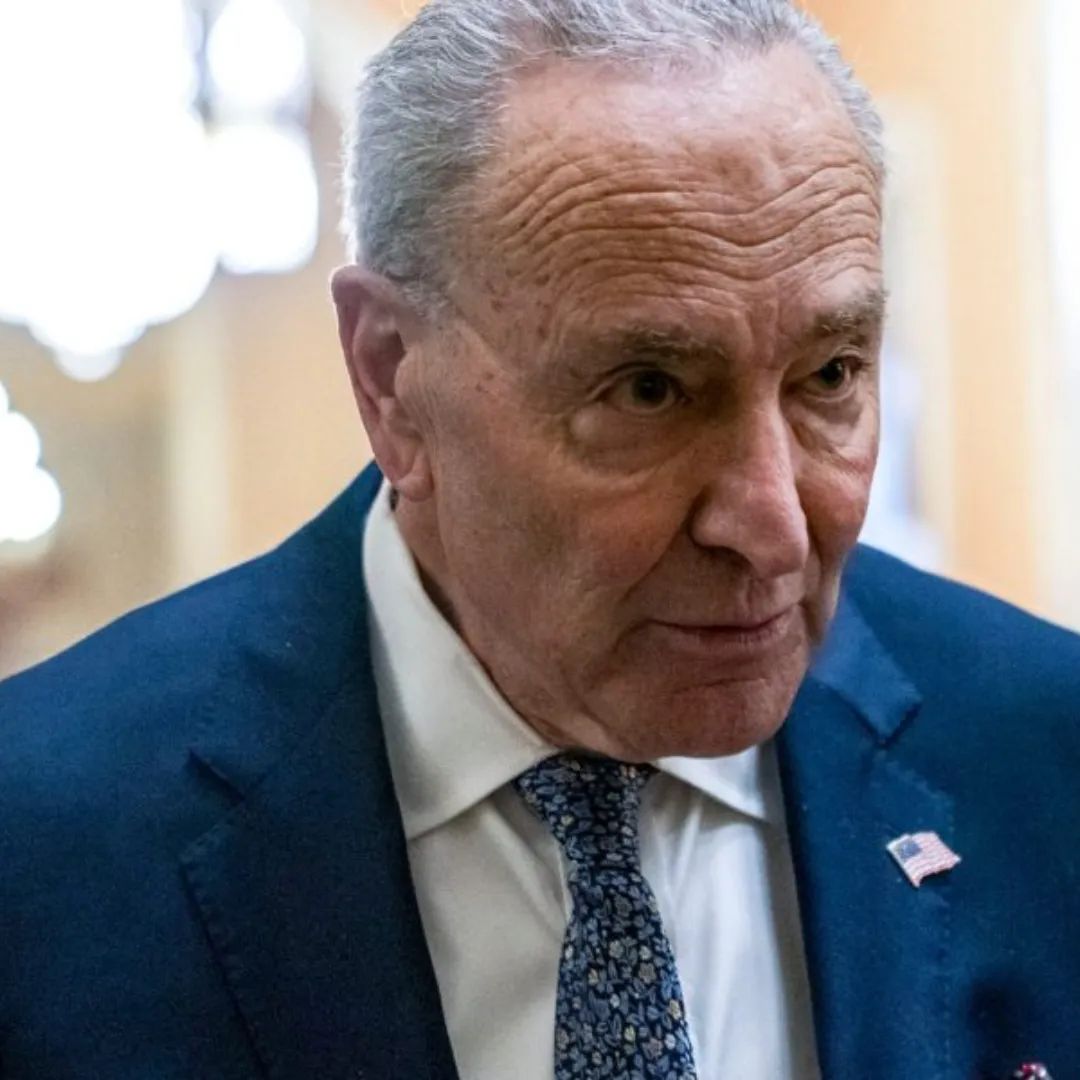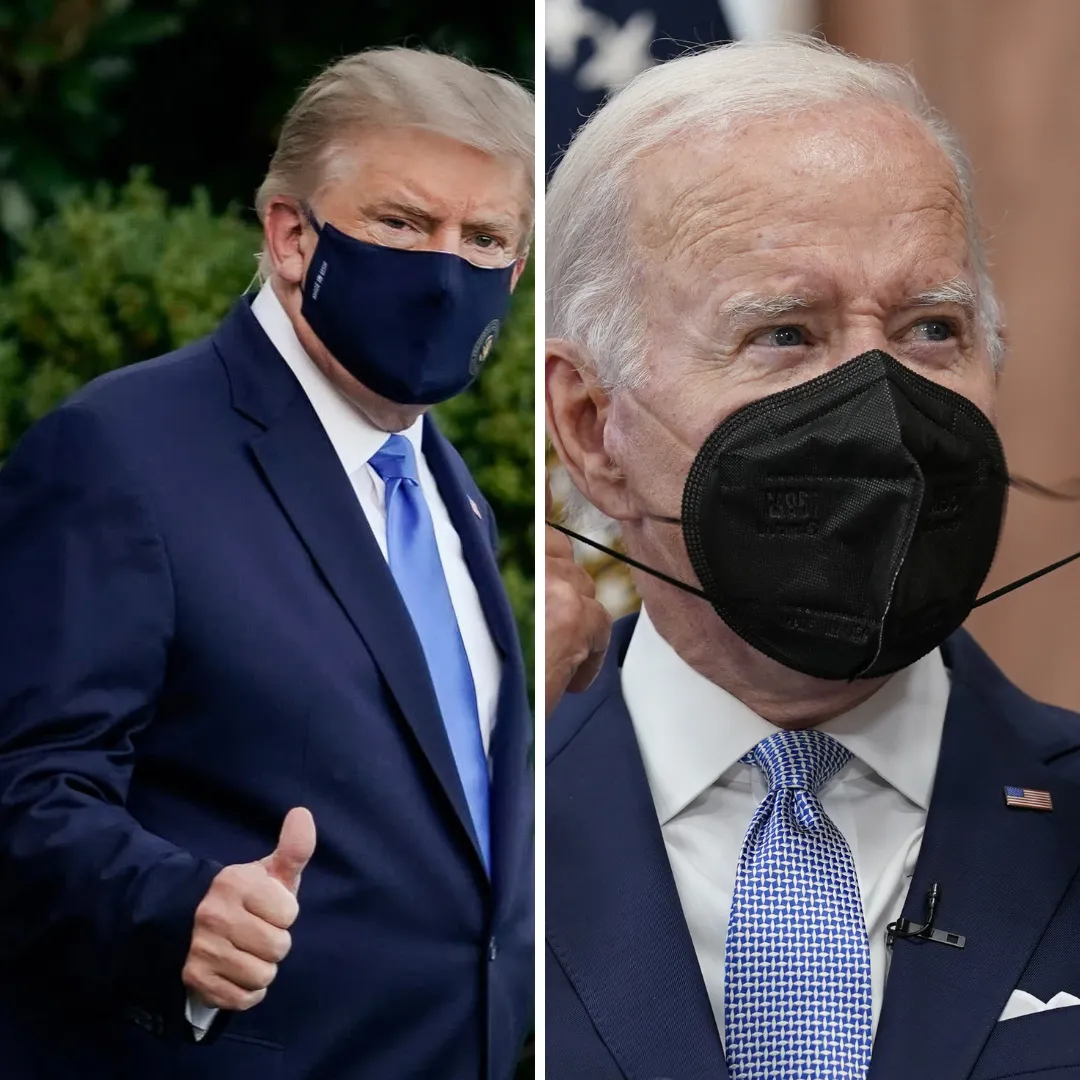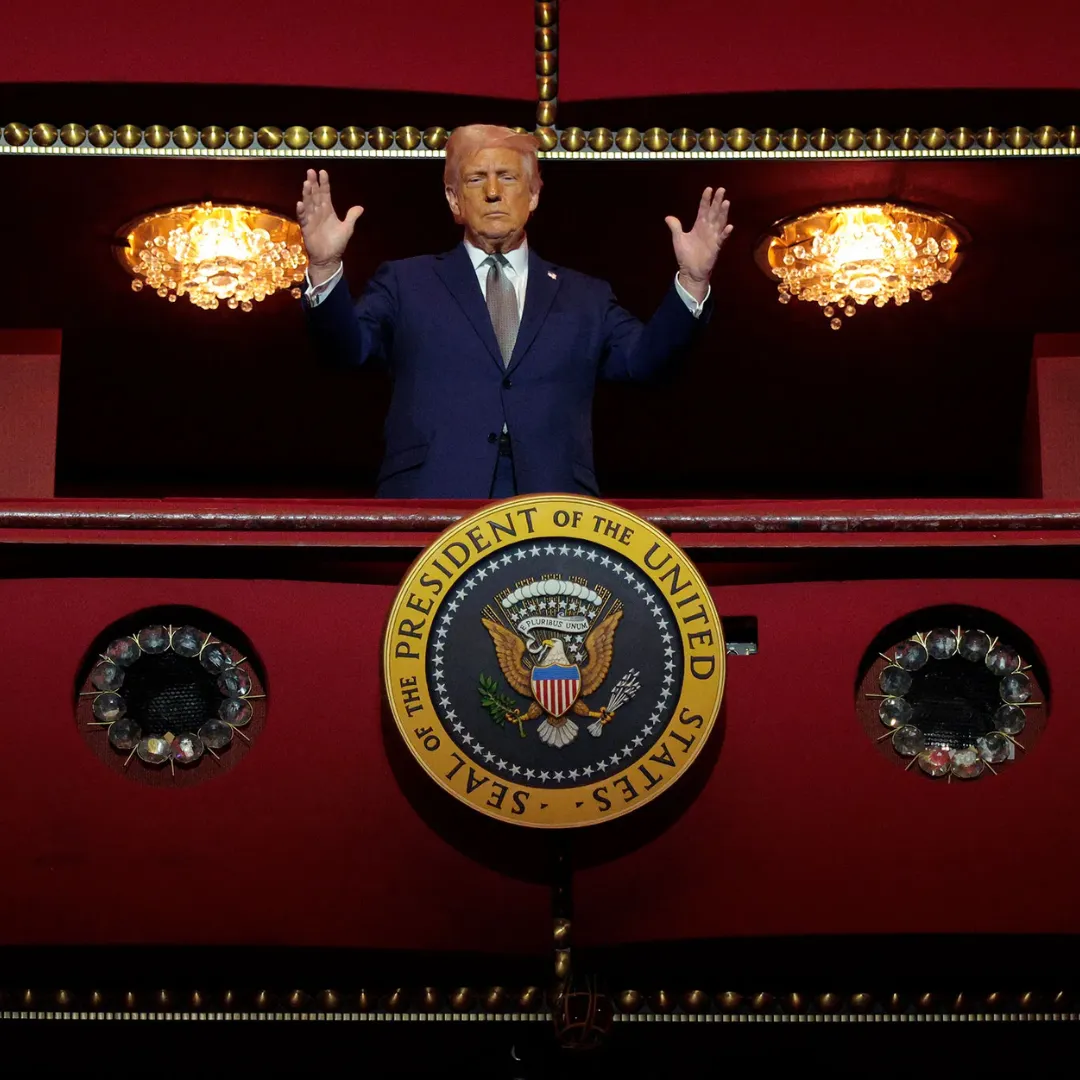
JD Vance is learning fast that being Vice President under Donald Trump is not so much a promotion as it is a test of obedience. And like others who have stood in that position before him, he may also come to learn just how quickly loyalty can be discarded when it no longer serves a purpose.
At a recent White House event honoring the Ohio State Buckeyes, the winners of the national college football championship, Vance had what might be described as a metaphorical moment. As Queen’s "We Are the Champions" played, the Vice President lifted the team’s trophy for a photo opportunity.
In an awkward misstep, the base of the trophy detached and clattered to the ground while the golden top half teetered in his hands. A quick-thinking Buckeyes running back grabbed it before it could fall further. The stumble lasted only seconds, but the symbolism lingered. In front of Trump, who watched impassively, Vance fumbled.
Just a day before, the President had been in Miami at a UFC fight surrounded by his inner circle. Elon Musk, Robert F Kennedy Jr, and other loyalists from his cabinet were present, enjoying the spotlight and the energy of the crowd. JD Vance was notably absent.
And it was not the first time the Vice President had been left out of what Trump considers his real entourage. His wife Usha recently gave a rare interview where she admitted, "Being Vice President can be a very lonely, lonely world."
The American public sees little of JD Vance. Despite occasional appearances at White House briefings and interviews on conservative news outlets, his domestic presence is thin. In contrast, he has been dispatched across the globe on a flurry of diplomatic missions.
From London to New Delhi, from Munich to the Vatican, Vance has become the face of America’s foreign outreach, while Trump keeps his focus almost entirely within the borders of the United States.
Some believe this is by design. Trump has always preferred to maintain a tight inner circle filled with loyalists who are wealthy, entertaining, or both. Vance, though clever and calculating, does not meet that criteria.
He is not part of the billionaire club nor does he carry the kind of tabloid charisma Trump seems to gravitate toward. Worse yet, he is smart enough to be considered a future contender. And in Trump’s political world, the only acceptable contender is Trump himself.
Vance has taken a very different route from that of Trump’s former Vice President, Mike Pence. Pence famously defied Trump’s demand to overturn the 2020 election results, leading to an open break between the two and violent chants of "Hang Mike Pence" from rioters at the Capitol.
Vance, in contrast, has made no secret of his loyalty. He has embraced Trump’s political worldview entirely, downplaying the events of January 6 and aligning himself with the administration’s most controversial policies.
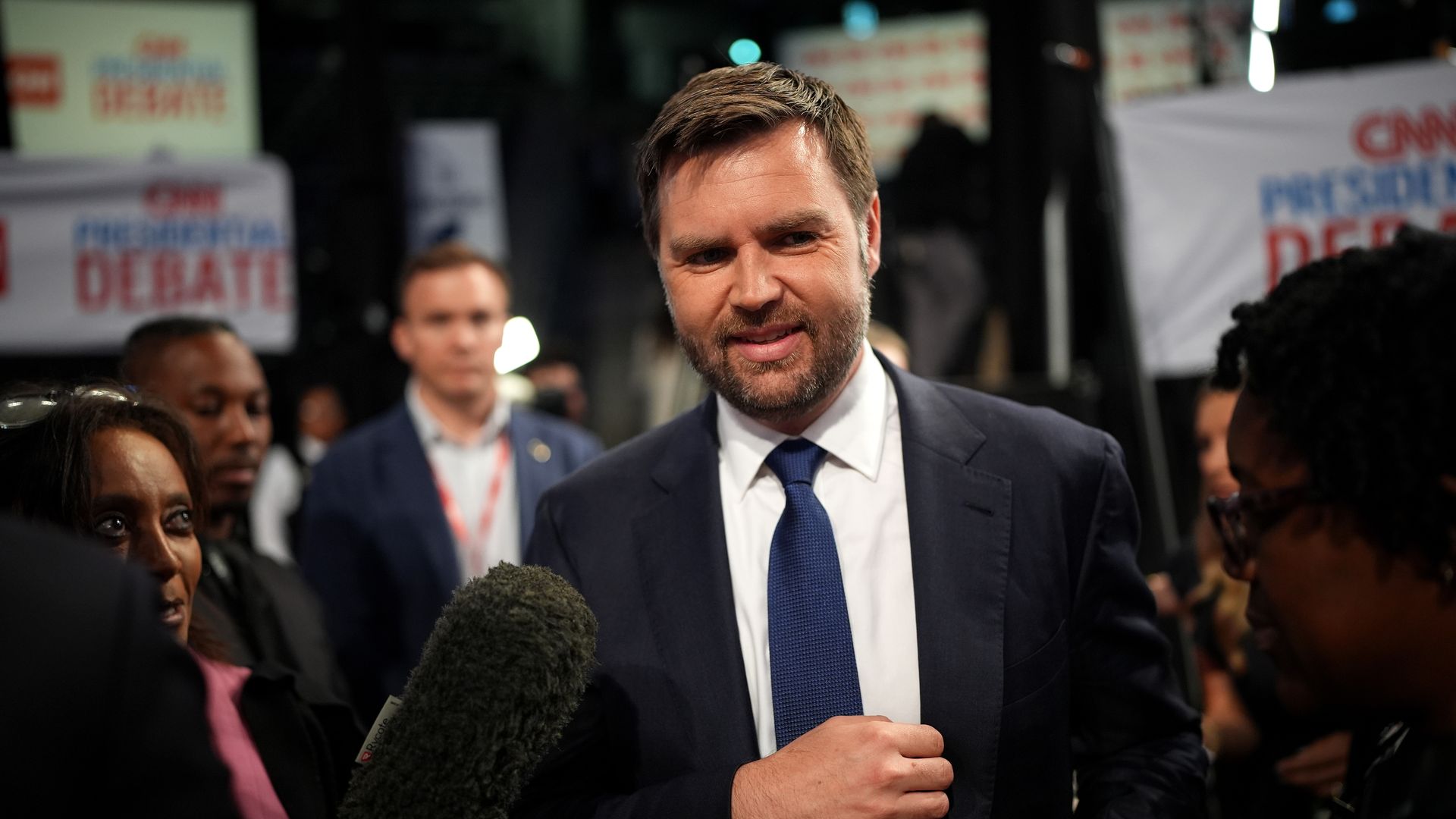
But loyalty to Trump does not guarantee safety. In fact, the more ambitious the loyalist, the more expendable they may become. Trump is deeply suspicious of those who garner attention that could rival his own, especially if they are seen as younger and more articulate.
Vance has already been jokingly referred to as "48" by some of the right-wing media ecosystem, a nod to the idea that he could succeed Trump in office. Trump reportedly does not find the joke amusing.
The President has instead kept Vance busy abroad, sending him to Europe, Asia, and now India. Over Easter, Vance traveled to Rome with his family, a significant journey for the Vice President, who converted to Catholicism in recent years.
The trip included a visit to the Vatican and a private moment of reflection at St. Peter’s Basilica. In the days that followed, he met with Italian Prime Minister Giorgia Meloni twice — once in Washington, during a crowded Oval Office session, and again in Rome at the Palazzo Chigi.
After Italy, the Vice President is set to visit India, where he will meet with Prime Minister Narendra Modi. The trip has personal resonance as well, with Vance’s wife Usha receiving attention as the first Hindu Second Lady in American history.
Their visit will include cultural and religious engagements, diplomatic dinners, and discussions of trade agreements that could shape economic relations for years to come.
But critics have pointed out that much of Vance’s diplomacy lacks real substance. Some of his international visits, including his failed charm offensive in Greenland, have produced little more than photo opportunities and political blunders.
His visit to the Munich Security Conference earlier this year made headlines when he harshly criticized European allies for their reliance on American military protection. The comments were poorly received and overshadowed any progress made at the summit.
His misstep in Greenland was even more damaging. Vance had hoped to position himself as a supporter of expanding the United States’ Arctic presence, but his attempts to woo local officials backfired.
The fallout resulted in the firing of a US Space Force commander stationed at Greenland’s Pituffik base after reports surfaced of an internal dispute over policy and strategy. What was intended as a demonstration of American strength became a symbol of clumsy leadership.

Still, the administration has kept him moving. According to insiders, the travel-heavy schedule is part of a broader strategy to keep Vance occupied and out of Trump’s shadow. While he collects stamps in his diplomatic passport, others closer to Trump remain firmly in the public eye.
Figures like Elon Musk, now a major power broker within the administration, and RFK Jr, the current Health and Human Services Secretary, have taken on the roles traditionally reserved for the Vice President.
Meanwhile, the few times Vance does speak to the press, he walks a careful line between offering policy insight and echoing Trump’s messaging. In his interview with a British publication, he spoke of a "real cultural affinity" between the United States and the United Kingdom.
The article was shared widely among foreign policy analysts but received little notice in the US, reinforcing the notion that Vance’s impact remains largely offstage.
What makes Vance’s situation particularly precarious is the perception that he is auditioning for a future beyond Trump. Even as he travels and speaks cautiously, his critics argue that every handshake, every speech, and every press appearance is part of a long game to build a profile for a possible 2028 campaign.
This has not gone unnoticed in Trump’s orbit. The President has dismissed suggestions that Vance could be his political heir and has privately expressed frustration at what he perceives as premature speculation.
One aide noted that Trump prefers to view his Vice Presidents as functionaries, not successors. Those who forget that distinction, the aide said, "usually find themselves on the outside before they even realize they’ve been pushed."
Whether Vance understands that reality is still unclear. His actions suggest a man trying to balance loyalty with ambition, faith with political pragmatism. But history is not on his side. No Vice President under Trump has emerged stronger.
Pence was vilified. Others who rose within Trump’s ranks only to fall out of favor — from cabinet secretaries to campaign managers — have found that proximity to the president does not guarantee long-term success.
For now, JD Vance remains on the inside, playing his role, smiling through international dinners and ceremonial events, and continuing to defend Trump’s policies with unwavering enthusiasm. But his recent public stumbles, including the mishandled trophy and diplomatic misfires, are starting to accumulate. They may not yet define his tenure, but they are shaping a perception.
He is loyal, certainly. But he is also expendable.
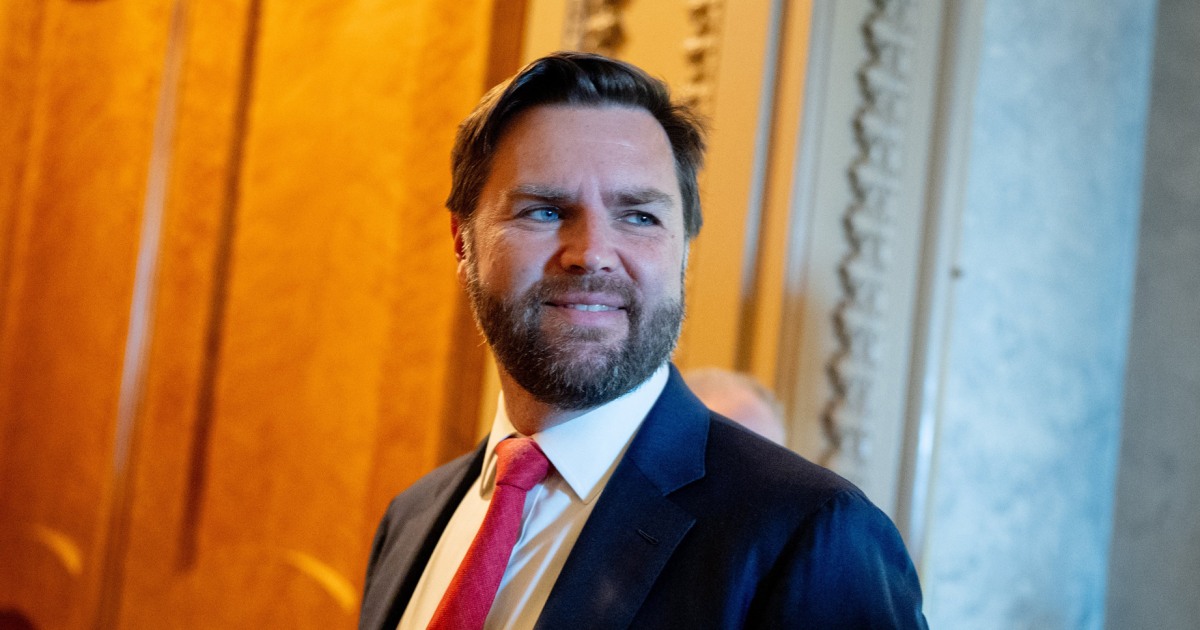
As one observer at the White House event put it, watching the trophy fumble, "It looked like a small mistake. But maybe it wasn’t."
Vance may still believe that his journey from a troubled upbringing in Ohio to the Vice Presidency marks him as someone who cannot be ignored. He may hope that careful maneuvering and absolute loyalty will insulate him from the fate that befell others who dared to think ahead in Trump’s world.
But as history has already shown, in Trump’s White House, even Vice Presidents can fall through the cracks. And when the music stops and the crowd looks away, they usually do so alone.
